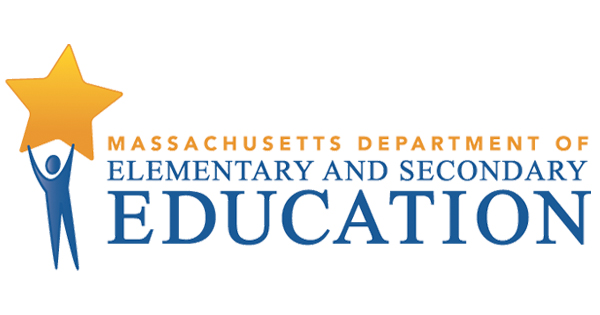
Board of Elementary and Secondary Education approves regulations making MTEL alternatives permanent
The Board of Elementary and Secondary Education voted unanimously this week to establish alternative assessments to the Massachusetts Tests for Educator Licensure (MTEL), creating a broader range of pathways for aspiring teachers that will ultimately strengthen and diversify the state’s educator workforce.
“Massachusetts leads the nation in education, and we’re proud to have the best teachers in the country,” said Governor Maura Healey. “These additional licensure assessments will open doors for aspiring educators, remove unnecessary barriers, and help us build a stronger, more inclusive educator workforce.”
“These new regulations give candidates more ways to demonstrate their content knowledge while still upholding high standards,” said Lt. Governor Kim Driscoll. “By approving alternative assessments to licensure, we’re supporting talented individuals who have the passion and skills to lead in the classroom but may not have performed well on the MTEL.”
The Board’s action this week makes MTEL alternatives permanent. Since 2020, the Department of Elementary and Secondary Education (DESE) has used a pilot program to offer 26 alternative assessments for educator licensure. The assessments were intended to expand access to the teaching profession, allowing prospective teachers to demonstrate competencies in different ways while maintaining high standards for subject matter knowledge, communications and literacy skills.
The Department contracted with the National Center for Analysis of Longitudinal Data in Education Research (CALDER) at the American Institutes for Research to conduct a multiyear evaluation of the MTEL alternative assessment pilots. According to their recent evaluation, overall, candidates who took the alternatives are performing similarly to teachers who passed traditional MTELs and are more diverse than those who took traditional MTELs.
“In Massachusetts, our diversity is our strength. Research shows us students perform better when they have teachers who look like them and understand where they come from,” said Education Secretary Patrick A. Tutwiler. “The Board’s action this week represents an important step toward ensuring every classroom has excellent, diverse educators while also improving student outcomes.”
The Board had sent regulations proposed by the Healey-Driscoll Administration out for public comment in February, for which DESE received more than 90 comments from students, families, educators and advocacy groups. In response to public comments, the final regulations incorporate an expanded list of prerequisite license options for the new Media Arts Endorsement. This now includes Radio and Television Broadcasting, Engineering Technology, Drafting, Information Support Services and Networking, Programming and Web Development, and Painting and Design Technology.
In addition to adding a new Media Arts Endorsement, the final regulations include new flexibilities for obtaining professional licensure, and the ability to apply the Bilingual Educator Endorsement toward the Sheltered English Immersion Endorsement requirement.
For more information about alternative assessments, visit DESE’s website: Pilot of Alternative Assessments to the MTEL – Massachusetts Tests for Educator Licensure (MTEL).
Statements of Support
State Representative Alice H. Peisch, Assistant Majority Leader:
“Students must learn from educators who represent diverse backgrounds, and students from diverse backgrounds must be taught by educators who reflect their experiences. These updated regulations are a great step for the recruitment and retention of diverse educators. Although the Commonwealth remains a national leader in public education, we have a lot of work to do to diversify the workforce in our schools; this is a big first step.”
State Senator Jason Lewis, Co-Chair of the Joint Committee on Education:
“I’m grateful to the Healey-Driscoll Administration for their work to strengthen the educator workforce by establishing permanent alternative assessments to the MTEL. To further increase the diversity of the educator workforce and improve student outcomes, we also look forward to DESE beginning work on the alternative certification process that would allow for a waiver of one of the required tests based on relevant education or experience which was authorized in the Educator Diversity Act passed last fall.”
State Representative Ken Gordon, Co-Chair of the Joint Committee on Education:
“This regulation will offer flexibility and attract talented individuals from various backgrounds who may have otherwise been deterred by traditional licensure barriers. This change will additionally benefit our students by increasing access to high-quality educators, enriching classrooms with diverse perspectives and helping to address teacher shortages across our school districts.”
State Representative Manny Cruz:
“I applaud the Healey-Driscoll Administration, Secretary Tutwiler, and the Board of Elementary and Secondary Education for advancing these crucial licensure reforms. This momentous vote is a powerful step toward ensuring that Massachusetts classrooms are led by educators who reflect the racial, cultural and linguistic diversity of our students. These reforms begin to dismantle longstanding systemic barriers that have disproportionately impacted aspiring educators of color, and they position our state to make meaningful progress toward achieving 25 percent educator diversity by 2030. I look forward to continued opportunities to support and advise the administration, DESE and local school districts in fully realizing the promise of the Educator Diversity Act — on behalf of our students, educators, and communities.”
Governor’s Advisory Council on Black Empowerment Chair Tanisha Sullivan:
“We applaud DESE’s vote to establish alternative assessments to the MTEL, a long-overdue step toward expanding access to the teaching profession. By creating more equitable pathways for aspiring educators, we are not only diversifying the workforce but also helping to improve educational outcomes—particularly in literacy, where culturally responsive instruction makes a measurable difference. This move brings us closer to the excellence, equity and outcomes our students deserve.”
Latinos for Education CEO and Founder Amanda Fernandez:
“Yesterday’s vote is a critical step toward dismantling barriers that have long kept talented educators of color from entering and remaining in the teaching profession. By establishing multiple pathways to licensure, the Board is not only expanding access — it is righting a longstanding inequity that has disproportionately impacted educators of color, particularly those working under emergency licenses. This decision affirms that diverse life experiences and professional strengths matter, and that there are many ways to demonstrate readiness to lead a classroom. Latinos for Education is proud to support this reform and remains committed to working with DESE to ensure that all aspiring educators — especially those from historically marginalized communities — can thrive in our schools.”
Massachusetts Teachers Association President Max Page and Vice President Deb McCarthy:
“The MTA appreciates the Board adopting permanent MTEL alternatives. Additional options to meet licensure requirements will help diversify our teaching force and tackle the problem of teacher shortages. The MTEL alternative pilot program has demonstrated that Massachusetts can rely on other high-quality assessments, including performance-based assessments, to determine a teaching candidate’s readiness for licensure. The MTA has long advocated for knocking down the barriers that have prevented candidates in preparation programs and those licensed in other states from entering and completing licensure programs here. MTEL alternatives will maintain the high caliber of teachers working in our public schools and expand the pool of qualified teachers that districts can hire. The MTA is looking forward to the full implementation of the additional alterative pathways to further reduce barriers to full licensure.”
American Federation of Teachers Massachusetts President Jessica Tang:
“This is a critical step forward to address the current teacher shortage we’re facing and, more importantly, increase the diversity of our pipeline of teachers. Research has shown time and time again that all students benefit from a diverse educator workforce – one that accurately reflects the wonderful diversity of our communities. As we build a stronger, more diverse pipeline, more students will be able to identify with their teachers and will be more likely to consider becoming teachers themselves. We look forward to working with the state and Legislature to continue to identify ways to make stronger, more supportive schools for all.”
Boston Teachers Union Executive Vice President Lea-Antoinette Serena:
“We are thrilled with the passage of the Educator Diversity Act and the vote by the Massachusetts Board of Elementary and Secondary Education. Tuesday’s vote will help in creating alternative pathways to educator licensure in Massachusetts. By moving beyond a one-size-fits-all testing system, we’re opening the door for more talented, passionate future educators — particularly those from historically underrepresented communities — to demonstrate their readiness to teach in new, meaningful ways. This is a critical step forward in strengthening and diversifying our educator workforce so that every student has access to teachers who reflect and understand their experiences.”
Association of Massachusetts School Equity Leaders (AMSEL) President Manuel J Fernandez:
“We applaud the Board’s vote on allowing alternative methods of assessment for educator licensure. The state has many talented teachers who have strong content knowledge and student engagement but are simply unable to pass the Communications and Literacy section of the MTEL. Alternative methods of assessment will ensure that students maintain access to highly skilled teachers. This is a win for educators and students.”
Massachusetts Association of School Superintendents Executive Director Mary M. Bourque: “We commend the state Board of Education for taking meaningful steps toward creating more inclusive and equitable pathways into the teaching profession by expanding and designing alternative MTEL assessments.”
Massachusetts Association of School Committees Executive Director Glenn Koocher:
“These alternative assessments will now make possible the hiring and retaining of more competent educators from a broader pool of candidates in a way that strengthens classroom instruction and counseling.”
The above press release was submitted to us by the MA Department of Elementary and Secondary Education
If you have a news story that you would like to share, please contact us via email or call 781-780-9460.

